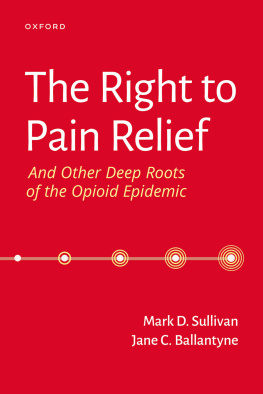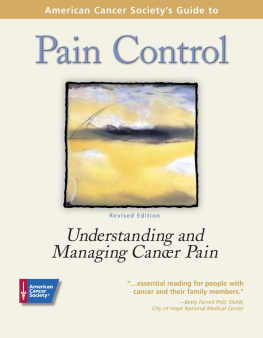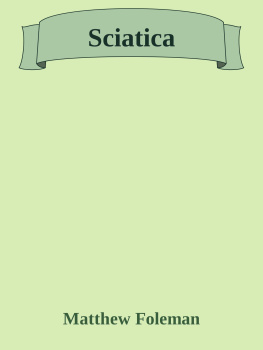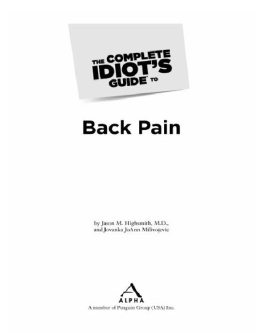Pain
Pain
A Political History
KEITH WAILOO

2014 Johns Hopkins University Press
All rights reserved. Published 2014
Printed in the United States of America on acid-free paper
9 8 7 6 5 4 3 2 1
Johns Hopkins University Press
2715 North Charles Street
Baltimore, Maryland 21218-4363
www.press.jhu.edu
Library of Congress Cataloging-in-Publication Data
Wailoo, Keith, author.
Pain : a political history / Keith Wailoo.
p.; cm.
Includes bibliographical references and index.
ISBN 978-1-4214-1365-5 (hardcover : alk. paper) ISBN 1-4214-1365-5 (hardcover : alk. paper) ISBN 978-1-4214-1366-2 (electronic) ISBN 1-4214-1366-3 (electronic)
I. Title.
[DNLM: 1. Health PolicyhistoryUnited States. 2. Pain ManagementhistoryUnited States. 3. AnalgesicsUnited States. 4. History, 20th CenturyUnited States. 5. History, 21st CenturyUnited States. 6. PainpsychologyUnited States. 7. PoliticsUnited States. WL 11 AA1]
RB127
616'.0472dc23 2013034071
A catalog record for this book is available from the British Library.
Special discounts are available for bulk purchases of this book. For more information, please contact Special Sales at 410-516-6936 or specialsales@press.jhu.edu.
Johns Hopkins University Press uses environmentally friendly book materials, including recycled text paper that is composed of at least 30 percent post-consumer waste, whenever possible.
To my exemplary parents, Bert and Lynette Wailoo
Contents
Pain
INTRODUCTION
Between Liberal Relief and Conservative Care
In the 1990s, talk-radio stars like Rush Limbaugh and Laura Schlessingerthe brash and arrogant voices of American conservatismrose to fame by rejecting presidential candidate and later president Bill Clintons liberalism. Like many tough-talking conservatives, Schlessinger singled out for special abuse four words Clinton had uttered during the 1992 campaign: I feel your pain. The phrase became a frequent object of scorn for those who doubted the liberals ability to feel anothers pain and who (in the name of conservatism) held an opposing political worldview. Schlessinger responded caustically to Clinton: Im not here to deal in feelings. I feel your pain is bullshit. Limbaugh, who routinely praised the virtues of the individual and of the free market and decried the malfeasance of government, championed himself as a moral force against Clintons liberalism. In 1996, Limbaughs television program showed footage of Clinton leaving a memorial for his commerce secretary, Ron Brown, to illustrate liberal deception. The footage showed the president first laughing until, when he saw the camera, he became somber and even wiped away a tear. To the derisive laughter of his followers, Limbaugh warned, This is the best illustration of the fake and phony characteristics of this man, the disingenuousness of him, and this says it better than most. Behind such claims of compassion, Limbaugh asserted, lay a vast agenda of deceit with implications for policy and society: Just keep this in mind, today its the pharmaceutical manufacturers, the cable TV industry, insurance companies, physicians, and chief executive officers of major corporations [Clinton is] targeting. Tomorrow it could be you.feel others pain, and the charade of government programs claiming to help people when they only promoted dependencewas galling.
As political pundit E. J. Dionne wrote in 1996, it had become easy to parody Clintons willingness to translate I feel your pain into an eclectic and philosophically promiscuous mix of policies that play well in the polls. In other words, these arguments (both Clintons pain-speak and conservative portrayals) were not all rhetoric and political stagecraftthey informed policy. Indeed, from the mid-twentieth century, liberal government expansion had been informed by the goal of relieving pain in society, with compassion for disabled individuals driving the development of disability policy and concern for the elderly in pain driving Medicare politics. Pain and policy comingled. Meanwhile, the conservative movement ascended, using as political fodder the argument that liberal politicians supposed concern for the pain of others was an elaborate fraud. Mocking Clinton and defending Limbaugh, one letter writer took issue with what he saw as the Lefts code words and the harm done in the name of liberal compassion: The left is so fond of accusing conservatives of using code words. Civil rights have become the biggest code words of all, standing for reverse discrimination, quotas, affirmative action, race-based set-asides In this I feel your pain society, white males are the only group it is legal to discriminate against. An editorial writer, Paul Taylor, similarly caricatured liberals as two-faced whiners: In 1992, the whiners achieved the latest in a string of dubious political victories by electing a president who is forever reassuring them: I feel your pain. Naturally, this makes them whine even louder. Pain defined a fundamental political divide.
This angry caricature of compassionate liberalism as deceitful and destructive predated the 1990s. Indeed (as the pages following will show), the claims made about pain and about people in pain were central to the ongoing battle between liberals and conservatives stretching back to World War II. Long before Clinton, conservatives had alleged that excessive bleeding heart compassion and the government programs that supported it had led American society down the road to dependence, welfare, fraud, and fiscal wreckage. If pain afflicted America, they alleged, the liberals had indulged it or caused it. The political Left had built a robust system, for example, of taxpayer-financed government disability benefits catering to people who claimed pain as their primary ailment, they had encouraged a culture of complaint and easy relief, and (so the argument against Clinton went) they had done this under the dubious guise of feeling the pain of others. That many in America believed in Clintons compassion, voted for him, and elected him president, made the claim all the more infuriating.
Conservatives in the Clinton years were mostly refining old arguments on liberalism, pain, and fraud that had been honed in earlier eras. When Ronald Reagan became president in 1981, he too took a stand on pain. He assured Americans that in this present crisis, government is not the solution to our problems, government IS the problem. By March 1981, people literally claiming to be in pain and seeking Social Security disability benefits for alleged chronic conditions found themselves in the crosshairs of the Reagan revolution. The president turned to Richard Schweiker, his secretary of Health and Human Services, to oversee a purge of half a million people from the disability rolls, weeding out ineligibles. Officially, the concern was not pain but pain fraudbenefits extended to people on the basis of their subjective complaints. Of course, the Reagan war on pain fraud was a war on liberalism itself; it was a policy response to the rise of disability benefits, the advent of Medicare, and the growth of a welfare state organized around misguided compassion. Reagan had spent decades insisting that government programs like Medicare and Aid to Families with Dependent Children (welfare) bred paralyzing dependence and that excessive regulation and taxation penalized hardworking people. The system, as built by liberals, undermined freedom and free enterprise. Nothing attracted more derision from Reagan than the claim that bloated government and the welfare state knew peoples pain. Limbaughs accusation, then, merely added another chapter in a long narrative, continuing a line of conservative skepticism about the excesses of liberal society.
Next page








